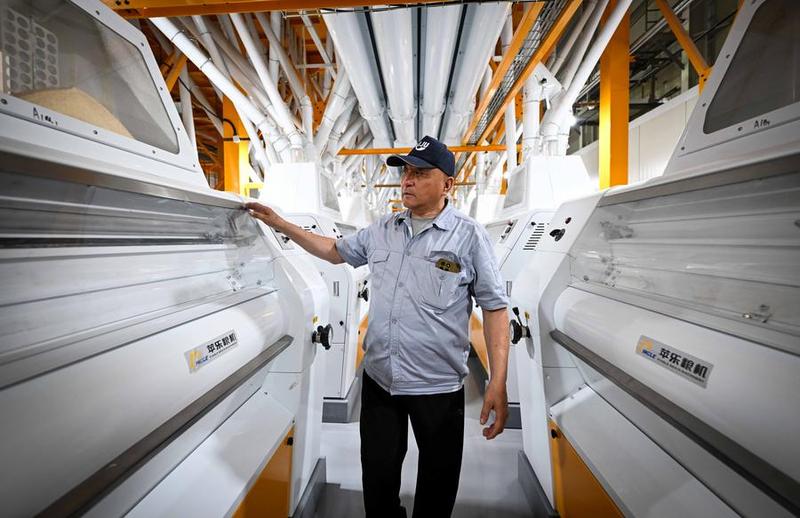Crude oil and natural gas constitute Central Asian nation's main shipments

China-Kazakhstan trade is expected to see robust growth over the next five years, after bilateral trade hit a record high in 2024, setting the stage for further expansion in energy, agriculture, transport and emerging industries, said Kazakh President Kassym-Jomart Tokayev on Tuesday.
Speaking at the eighth meeting of the China-Kazakhstan Entrepreneurs Committee in Beijing, Tokayev said the goal is to further expand trade over the next five years, with both countries having the capacity to achieve such an objective.
China-Kazakhstan bilateral trade value grew 6.8 percent year-on-year to $43.82 billion last year, China's General Administration of Customs said.
READ MORE: Sino-Kazakh cooperation strengthened
Crude oil, natural gas, minerals and agricultural products constitute Kazakhstan's main shipments to China. China exports mainly manufacturing equipment, trains, steel, vehicles, electronics, textiles, garments and household appliances to Kazakhstan.
Economic and trade relations between China and Kazakhstan are expected to broaden in the coming years, underpinned by cooperation under the Belt and Road Initiative aimed at enhancing regional connectivity and advancing projects in energy, logistics and agriculture, said Ren Hongbin, chairman of the China Council for the Promotion of International Trade.
To translate such prospects into tangible outcomes, businesses from China and Kazakhstan signed more than 70 agreements worth $15 billion across a range of industries at the committee's eighth meeting.
China has invested $27 billion in Kazakhstan's economy, with over 6,000 businesses involving Chinese capital, ranging from State-owned enterprises such as China National Petroleum Corp to technology groups like Huawei, according to information released by the Kazakh government.
Market watchers and exporters said that amid growing pressure in the global economy, cooperation between China and Kazakhstan has not only helped stabilize Eurasian industrial links and keep China-Europe freight train services running smoothly, but also contributed to global energy security.
With improved connectivity through projects such as the Trans-Caspian International Transport Route and newly built roads, the two countries still have ample room to further align their development strategies, said Chen Jianwei, a researcher at the University of International Business and Economics' Academy of China Open Economy Studies in Beijing.
The TITR is a rail freight corridor linking China and the European Union through Central Asia, the Caucasus, Turkiye and Eastern Europe, said the Tokyo-based Asian Development Bank Institute.
"They are also exploring new areas of cooperation, particularly in the trade of industrial goods, artificial intelligence, infrastructure and green energy development. They will provide fresh momentum for bilateral economic ties," said Chen.
After hosting a major import-export exhibition in Astana in June, Jiangsu SOHO Holdings Group Co, a State-owned enterprise based in Nanjing, Jiangsu province, said the three-day event attracted more than 5,000 business participants and generated deals worth over 800 million yuan ($111.93 million). The company plans to hold additional trade fairs in both China and Kazakhstan in the coming years, according to Nanjing Customs.
ALSO READ: Companies expand footprint overseas
Wei Qingwen, president of the group's technology branch, said his unit has established a physical platform in Nanjing and is promoting foreign trade with Kazakhstan and other Central Asian countries in sectors such as agricultural products, mineral resources and automobiles.
Ningbo Kingbird Power Tools Co, a manufacturer of power tools and small household appliances in Ningbo, Zhejiang province, saw its exports to Kazakhstan reach 23 million yuan in the first seven months, up more than 100 percent year-on-year, said Ningbo Customs.
Hu Yongbin, a manager at the company's foreign trade unit, said the surge was mainly driven by Kazakhstan's rising demand for affordable and durable household products, as well as smoother logistics channels under the BRI.
"More Kazakh distributors are turning to Chinese suppliers like us because of the combination of cost-effectiveness and quick delivery," Hu said.
Contact the writer at zhongnan@chinadaily.com.cn


